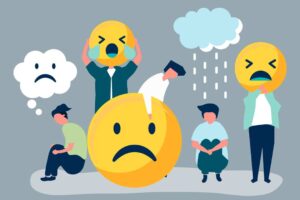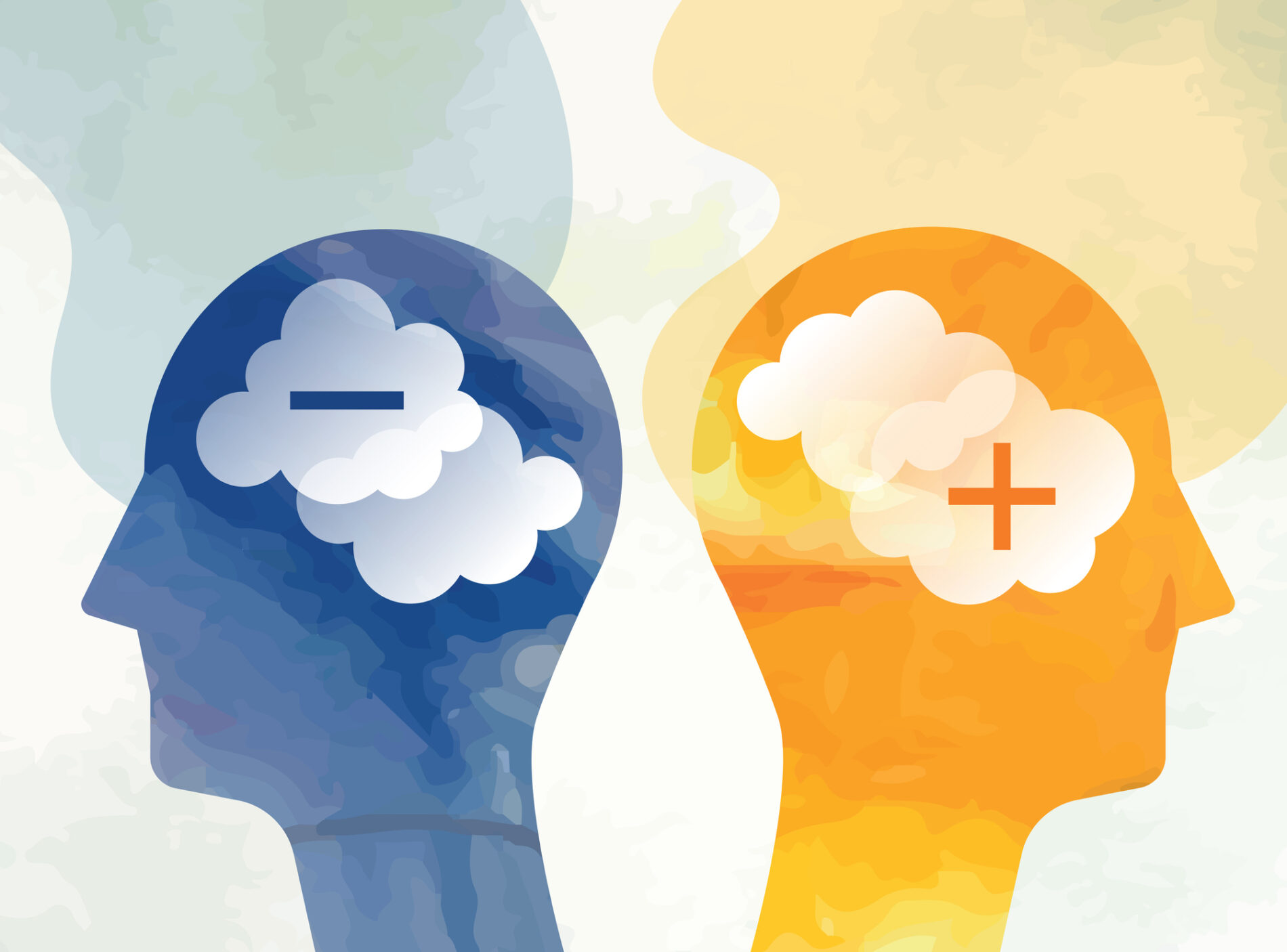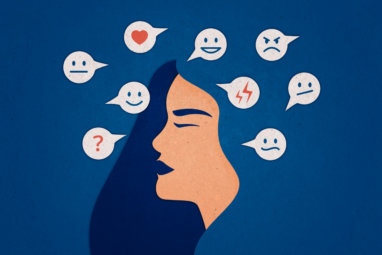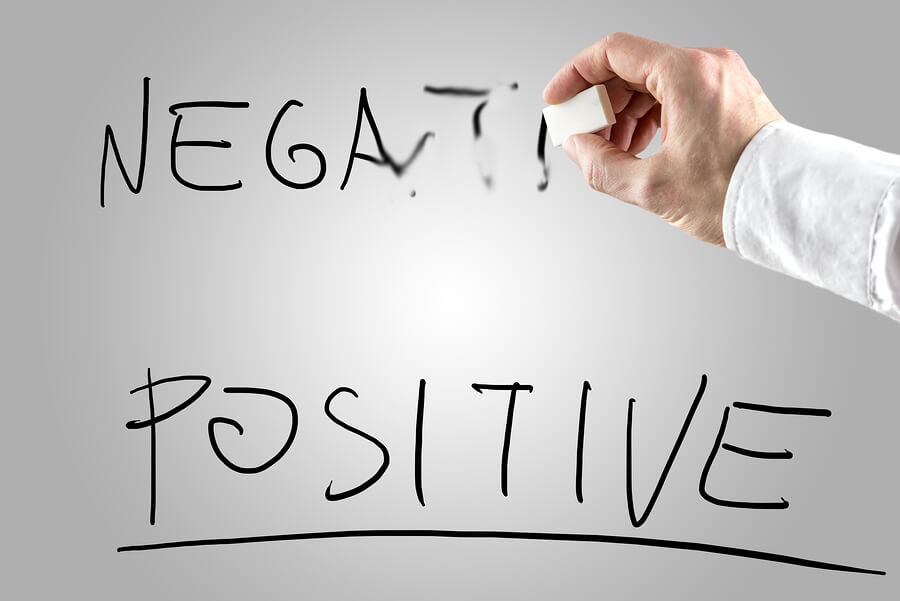Negative feelings are a part of life. Everyone experiences them at some point, and they can be extremely difficult to deal with. In this blog post, we will explore the origins of negative feelings, as well as some methods for dealing with them. We will also discuss why it is important to understand and accept our negative emotions, rather than trying to suppress them.
Contents
What Are Negative Feelings?
 Negative feelings are any emotions that are unpleasant or cause us to feel bad. They can include things like sadness, anxiety, anger, frustration, and fear. Most of us experience negative feelings at some point in our lives, and they’re a normal part of being human. Negative feelings are also one thing that can trigger mental health problems like depression and anxiety. That’s why it’s important to understand where they come from, how to deal with them, and when to seek help.
Negative feelings are any emotions that are unpleasant or cause us to feel bad. They can include things like sadness, anxiety, anger, frustration, and fear. Most of us experience negative feelings at some point in our lives, and they’re a normal part of being human. Negative feelings are also one thing that can trigger mental health problems like depression and anxiety. That’s why it’s important to understand where they come from, how to deal with them, and when to seek help.
Sometimes these negative feelings also have a physical component. For example, you might feel like your heart is racing or you can’t catch your breath when you’re anxious. These physical symptoms can be just as real and uncomfortable as the emotional ones.
These feelings also affect our behavior. When we’re feeling down, we might withdraw from others or stop doing things we enjoy. We may also lash out at the people around us or act in ways that are harmful to ourselves.
Types of Negative Feelings

There are many types of negative feelings as well. Some of these signs are:
Anxiety
Anxiety is one feeling that can have both physical and emotional symptoms. As we mentioned before, some of the physical symptoms of anxiety can include a racing heart, sweating, and feeling like you can’t catch your breath. Emotionally, you might feel tense, nervous, or on edge. You might also have intrusive thoughts or worry a lot about things that could go wrong.
Anger
Anger is another emotion that can be both physical and emotional. Physical signs of anger may include clenched fists, increased heart rate, and shallow breathing. Emotional signs may include feeling irritated, frustrated, or even enraged. You might also find yourself having negative thoughts about the person or situation that you’re angry about.
Sadness
Sadness is another emotion that can be both physical and emotional. Physical signs of sadness may include a decrease in heart rate, feeling tired or exhausted, and changes in appetite. Emotional signs may include feeling down, hopeless, or helpless. You might also cry more often when you’re sad.
Depression
Depression is a mental health problem that can cause negative feelings. Some of the signs of depression are feeling persistently sad or “empty,” loss of interest in activities that you used to enjoy, sleep problems (either sleeping too much or too little), fatigue, difficulty concentrating, and thoughts of death or suicide.
Guilt
Guilt is another sign of negative feelings. Guilt is feeling like you’ve done something wrong or that you could have done better. You might feel guilty about something you’ve done in the past, or you might feel guilty about not doing something that you think you should have.
Loneliness
Lonely is feeling isolated from others or like you don’t have anyone to turn to. You might feel like no one understands you or that you’re always the odd one out. This can lead to feelings of sadness, anxiety, and depression.
Rejection
Rejection is another sign of negative feelings. Rejection is feeling like you’re not good enough or that you’ve been rejected by someone you care about. This can lead to feelings of loneliness, sadness, and low self-esteem.
Annoyance
Annoyance is feeling bothered or irritated by someone or something. This can be a short-term feeling or it can last longer. It can also lead to feelings of anger, frustration, and annoyance. Also, there are different types of annoyance. For example, you might be annoyed by a situation, such as being stuck in traffic. Or you might be annoyed by someone’s behavior, such as when they interrupt you while you’re talking.
Jealousy
Jealousy is feeling threatened by someone else’s success or good fortune. You might feel like you’re not as good as them or that they don’t deserve what they have. This can lead to feelings of insecurity, inadequacy, and low self-esteem. Jealousy is one of the most destructive negative emotions because it can damage relationships and lead to resentment, bitterness, and anger.
Disgust
Disgust is one of the most powerful negative emotions. It’s an intense feeling of revulsion, usually in response to something that is perceived as dangerous or unclean. Disgust can lead to feelings of fear, anger, and disgust. It can also be a sign of anxiety or phobia. There may be something that you’re afraid of, such as heights, that triggers a feeling of disgust. Or you might feel disgusted by someone’s behavior, such as when they are rude or aggressive.
What Causes Negative Feelings?

There are many different things that can cause negative feelings. Some causes are:
Biology
Biology can be one cause of negative feelings. For example, if you have a mental health problem like depression or anxiety, it can be caused by changes in your brain chemistry. Also, there are some medical conditions that can cause symptoms of anxiety or depression. Sometimes there may be no clear cause for the way you’re feeling.
Environment
Your environment can also be a cause of negative feelings. If you’re in a toxic or abusive relationship, that can cause anxiety, depression, and even post-traumatic stress disorder (PTSD). Also, if you’ve experienced a traumatic event, that can lead to PTSD. Additionally, if you live in poverty or don’t have access to basic needs like food and shelter, that can also lead to negative feelings.
Life Experiences
Certain life experiences can also lead to negative feelings. For example, if you’ve been bullied or discriminated against, that can cause low self-esteem and depression. Or if you’ve lost a loved one, that can cause grief and sadness. Sometimes there maybe be no clear cause for the way you’re feeling.
Genetics
Genetics is another factor that can cause negative feelings. If your parents or grandparents have a mental health problem, you may be more likely to experience one yourself. Additionally, some research suggests that there may be a link between certain genes and mental health problems. It can be hard to control the way you feel if it’s caused by biology or genetics.
Abuse
Abuse is one of the most common causes of negative feelings. If you’ve been a victim of physical, sexual, or emotional abuse, that can lead to a variety of mental health problems, including PTSD, depression, anxiety, and substance abuse. Abuse can also cause low self-esteem and make it hard to trust other people. There are many different types of abuse, and no one deserves to be a victim of it.
Workload
Also, if you have a lot of work or responsibilities, that can lead to feelings of stress and anxiety. If you’re constantly worried about money or your job, that can also cause negative feelings. Having too much responsibility can be overwhelming, and it’s important to find a balance between work and leisure.
Negative Impacts of Negative Feelings

There are many negative impacts of having negative feelings. Some of these are:
Suicidal Thoughts
Suicidal Thoughts are something that a lot of people with negative feelings experience. These thoughts are when you think about or plan ways to kill yourself. If you’re having suicidal thoughts, it’s important to get help from a mental health professional or a suicide hotline immediately. These thoughts are not something that you should try to deal with on your own. These
Substance Abuse
Another negative impact of having negative feelings is substance abuse. This is when people turn to drugs or alcohol to try to cope with their feelings. Substance abuse can lead to addiction and other health problems. It’s important to get help if you’re struggling with substance abuse. There are many resources available, such as 12-step programs and rehabilitation centers.
Isolation
Negative feelings can also lead to isolation. This is when people withdraw from others and stop participating in activities that they used to enjoy. Isolation can make negative feelings worse, so it’s important to stay connected with other people. If you’re feeling isolated, try to reach out to friends or family members. You can also join a support group or participate in activities that you enjoy.
What Can You Do About Negative Feelings?
If you’re experiencing negative feelings, there are things that you can do to help yourself feel better. Here are some ideas:
Seek Professional Help
If you’re struggling to deal with negative feelings, seek professional help. This could be in the form of therapy, medication, or both. Therapy can help you understand and manage your feelings. It can also provide support and guidance. Medication can also be helpful for some people. If you think that you might need professional help, talk to your doctor or mental health professional.
MantraCare is one platform that can help you with some of the things mentioned above. With MantraCare, you can talk to a therapist, set goals, and get support from other people who are going through similar things. You can also join our community and participate in activities that you enjoy. If you’re struggling with negative feelings, be sure to check out MantraCare.
Talk To Someone
One of the best things you can do is talk to someone about how you’re feeling. This could be a friend, family member, therapist, or counselor. Talking about your feelings can help you understand them better and make them more manageable. It can also be helpful to talk to someone who has gone through something similar to what you’re going through. Also, there are many hotlines that you can call if you need someone to talk to immediately.
Exercise
Exercise is also a great way to deal with negative feelings. Exercise releases endorphins, which have mood-boosting effects. It can also help to reduce stress and anxiety. Additionally, exercise can improve your sleep, which can also help reduce negative feelings. There are some exercises that are specifically designed to help people with mental health problems, such as yoga and meditation.
Eat Healthy
Eating healthy is another way to deal with negative feelings. Eating nutritious foods helps your body function better and can improve your mood. Additionally, drinking plenty of water is important for maintaining your mental health. Avoiding caffeine and alcohol can also be helpful, as they can make negative feelings worse. Food is another way to boost your mood and help you feel better
Create a Routine
Creating a routine can also help reduce negative feelings. Having a set schedule can help you feel more in control of your life and less overwhelmed by everything that you have to do. When creating a routine, be sure to include time for yourself to relax and do things that you enjoy.
Set Goals
Setting goals is a great way to deal with negative feelings. Having something to work towards can give you a sense of purpose and help you feel more in control of your life. When setting goals, be sure to make them realistic and achievable. This will help you feel successful and boost your mood. Sometimes, people find it helpful to write down their goals or make a plan of how they’re going to achieve them.
Get Plenty of Sleep
Getting enough sleep is important for your physical and mental health. Getting enough sleep can help reduce stress and anxiety, and it can also improve your mood. If you’re having trouble sleeping, there are some things that you can try, such as relaxation techniques or reading before bed. You can also talk to your doctor about sleep aids if you need them.
Limit Social Media Use
Social media can be a great way to connect with people, but it can also be a source of negativity. If you find that social media is making you feel bad, try limiting your use of it. This could mean only checking it once a day or taking breaks from it altogether. Additionally, unfollowing people or pages that make you feel bad is a good idea. You should also make sure that you’re following people and pages that make you feel good.
Practice Mindfulness
Mindfulness is a great way to deal with negative feelings. It involves being present in the moment and accepting your thoughts and feelings without judgment. Mindfulness can help you become more aware of your thoughts and how they affect your mood. Additionally, it can help you learn to control your thoughts and reactions to them. There are many mindfulness exercises that you can do, such as meditation or yoga.
Conclusion
Negative feelings are a normal part of life. They’re caused by a variety of factors, and they can be managed in different ways. If you’re struggling to cope with negative feelings, talk to a mental health professional. They can help you develop healthy coping mechanisms and work through whatever is causing your negative feelings.
Doing things that make you happy, spending time with people who make you feel good, and taking care of yourself are all important parts of managing negative feelings. Remember, everyone feels down sometimes. It’s nothing to be ashamed of—we all need a little help from time to time. Finding healthy ways to cope with your emotions will help you lead a happier, healthier life. Thanks for reading!
If you are looking for affordable Online Counseling MantraCare can help: Book a trial therapy session


